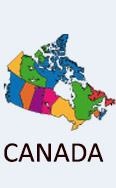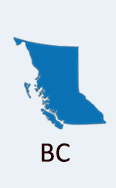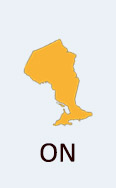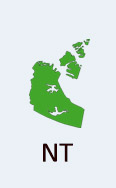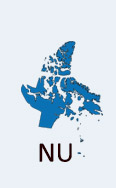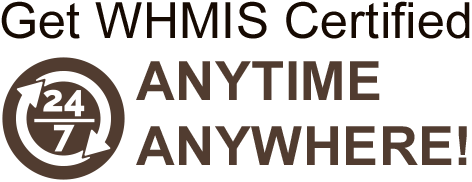| TRAINEE LOGIN | | | EMPLOYER / BILLING LOGIN | | | CONTACT US |
Newfoundland & Labrador WHMIS Training & Certification
In Canada, any businesses that have any classification of hazardous products in the workplace must comply with their provincial legislation on WHMIS. Standing for Workplace Hazardous Materials Information System, WHMIS is Canada’s program that implements and enforces the federal Hazardous Products Act and the Controlled Products Regulations. Canada, acting on the United Nations’ Globally Harmonized System of Classification and Labeling of Chemicals (GHS), wrote the federal legislation to put into place the standards set forth in the GHS.
As one of many countries who enacted the set of standards from the United Nations, this creates a unified network of communication about hazardous materials that effectively increases the protection of employees and the general public. Proper training helps to ensure the safety of employees, as well as the public and even the environment itself.
Safety being the number one concern for the Canadian government, they require that all workplaces adopt a program on WHMIS. The interpretation of federal laws led to provincial legislation that supports the use of one common set of communication standards, and the ability to enforce those laws rests with the provincial government.
All WHMIS communication materials, from pictographs, labeling, classifications of hazards, explanations of emergency procedures are the same across Canada, meaning that the requirements for implementing WHMIS in Newfoundland and Labrador are the same as they would be for any other province or territory. An extreme importance is placed on this national uniformity and it forms the basis of the intent of the GHS, which Canada supports.
In Newfoundland, Labrador and the other provinces and territories, there is also local legislation and regulation for the implementation and enforcement of WHMIS. In Newfoundland and Labrador this is covered in the Newfoundland and Labrador WHMIS Regulations, 2018 under the
Occupational Health and Safety Act (O.C. 2018- 083).
As an employer in Newfoundland or Labrador, do I need to educate and train my employees on WHMIS?
The answer to this question is Yes. Newfoundland and Labrador’s WHMIS Regulations stipulate that an employer must ensure that all employees who work with hazardous products or materials (or may encounter them in the workplace) receive education on WHMIS. Even if employees may be exposed to hazardous materials that they do not necessarily work with in a hands-on capacity, they must receive education on hazardous materials if they are present in or around the workplace to which they report.
Also, any workplace that brings in products from a supplier of hazardous materials must ensure that products they receive are properly labeled, whether they are using them, storing them, or transporting them.
Employees who produces, handle hazardous products or are exposed to hazardous products must also be provided with personal protective equipment as well as other equipment that is necessary for the safe handling or storage of the materials.
In general, where a hazardous product is present in the workplace, employers are responsible for educating on classifications of chemicals so that employees have broad knowledge of all classifications. Education must be provided on labeling and how to read both pictographs and written warnings of the risks and emergency procedures inherent to the use of or exposure to the different classifications of chemicals. Safety Data Sheets (SDSs) or a comprehensive SDS database must be provided and maintained in the workplace. The SDSs pertinent to the job requirements must be visible or readily available to all employees present in the workplace. Knowledge of special handling or storage requirements, as well as disposal procedures must be demonstrable.
And if job duties require more focused education on specific hazardous materials, it is the responsibility of the employer to determine what increased education is warranted and helpful to the safety of individual employees.
WHMIS training must also be provable, so records of education and training sessions must be kept and training must always be current.
How frequently do I need to train my workers on WHMIS in Newfoundland or Labrador?
While the answer to this question can differ from province to province and territory, it is generally accepted that employers must review and educate their employees on WHMIS annually. And in Newfoundland and Labrador, it is expressly indicated by provincial regulations that employers adhere to annual re-evaluation or training. This is also pre-empted by any change in employees’ duties or workplace conditions, or if there is a change in the most up to date hazard information.
Do I need to have a WHMIS Certificate for my employees?
Currently, Newfoundland and Labrador WHMIS laws do not require employers to issue a standard government-approved certificate to their employees. However, a WHMIS certificate or “WHMIS Card” can aid in providing the necessary proof that WHMIS education, training and testing has been provided to employees.
It is becoming more common that workers are asked if they have a WHMIS certificate, whether by an Occupational Health and Safety officer during a regular inspection or if the workplace is being reviewed after an Occupational Health and Safety incident. The WHMIS certificate in this case acts as a convincing piece toward proving the compliance of the workplace.
And it is becoming more common that workers from one organization are off-site on other organization’s work sites, whether working in transportation, simply moving product from one place to another, or performing duties in another workplace on a case by case basis. In this case, safety agents or managers at another workplace can require your employees to show some form of evidence that they have had generic WHMIS education and training. Being able to produce a WHMIS Card or certificate is a common way that contract workers or workers who work off site (not only at their own location) are able to provide a document that speaks to the education they have received.
WHMIS training organizations will typically issue a certificate that includes the name of their organization, the employee’s workplace, their name, a testing date, and a statement of proficiency or test score.
The Department of Government Services is the WHMIS authority for Newfoundland and Labrador. More information is available at this link to the Newfoundland and Labrador website, http://www.servicenl.gov.nl.ca/ohs/




